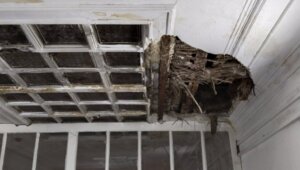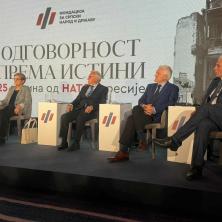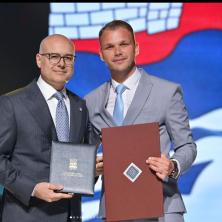
Izvor: N1 televizija, 15.Maj.2018, 18:55 (ažurirano 02.Apr.2020.)
US envoy: Higher number of cancer cases is not due to NATO
The US ambassador to Belgrade Kyle Scott said on Tuesday that an increased number of cancer patients in Serbia could equally be linked to a number of other factors besides NATO bombing of the country in 1999.
He added that neither in Serbia nor in any other country where the ammunition with depleted uranium was used had any health risk and that both the World Health Organisation (WHO) and the UN Environment Protection Programme >> Pročitaj celu vest na sajtu N1 televizija << had it confirmed.
Scott added that his country was ready to take part in any serious scientific research about the issue, in a reaction to Serbia’s Parliament decision to form a commission to deal with consequences of the NATO 1999 bombing, after the Parliament Speaker Maja Gojkovic linked the increased number in cancer patients to the depleted uranium used in NATO bombs.
NATO launched a bombing campaign in March 1999 to halt a Belgrade military and police offensive against the ethnic Albanian majority in Kosovo.
Scott said that the ammunition enriched by depleted uranium was used mainly in Kosovo and in smaller quantity in Presevo and Bujanovac.
The two regions in southern Serbia are mostly populated by ethnic Albanians.
“The main task of this commission would be to establish the link between the bombing and a large number of heavy diseases found among population… a significant increase in malignant illness,” Gojkovic told reporters on Friday.
NATO denied that later in the day, saying to N1 television that it believed the depleted uranium munitions expended during the war in Kosovo do not pose a health risk to the population.
Scott said that though someone might see a political benefit from linking the increase in cancer cases in Serbia to the NATO usage of the depleted uranium, he did not know of any scientific proof of that.
He added that the timing and the way how the commission was announced, as well as related statements, could suggest that a ruling had already been made regardless of possible research’s results.
Scott said that the reason for more cancer patients in Serbia could be equally related to the ageing population in the country, genetics, a large number of smokers or those living an unhealthy life otherwise, or even to a number of non-regulated landfills with dangerous and carcinogenic waste recently discovered in Serbia.
Scott said that he saw some statistics in Serbia showing that an increased number of cancer patients was noted long before 1999, adding that the picture was not much different than in many European countries.
But, he added, the mortality rate was higher, possibly due to late diagnosis or other problems in a treatment, including a slow acceptance of the innovative medicine.
He said he hoped that any scientifically based research that would take into account all possible origins would come out with the same results as the previous studies.
The UN Environment Protection Programme conducted a research in 2001 in the places with the depleted uranium and concluded there was no health risk.
Scott said that even the International Atomic Energy Agency said that the risk of consuming food and water was extremely low since the uranium had not entered the food chain.
However, several Serbia’s scientists, epidemiologists and radiologists, who have done their own research, have said the depleted uranium has been causing health issues in Serbia.
Western Balkans to employ more women
Izvor: N1 televizija, 15.Maj.2018
The representatives of the Western Balkans countries committed to a higher number of female employees at better paid and more qualified jobs, World Bank’s Linda Van Gelder said on Tuesday...The WB's Country Director for the Western Balkans Region added that “an increase in possibilities for women...
US General: Still not time for KFOR to leave Kosovo
Izvor: N1 televizija, 15.Maj.2018
A retired American general Wesley Clark, the NATO commander during the 1999 bombing of the then Federal Republic of Yugoslavia, said on Tuesday, it was early for the NATO-led international peacekeeping force, KFOR, to leave Kosovo...Clark, who was on a visit to Pristina, added that the Alliance's intervention...





















.jpg)



